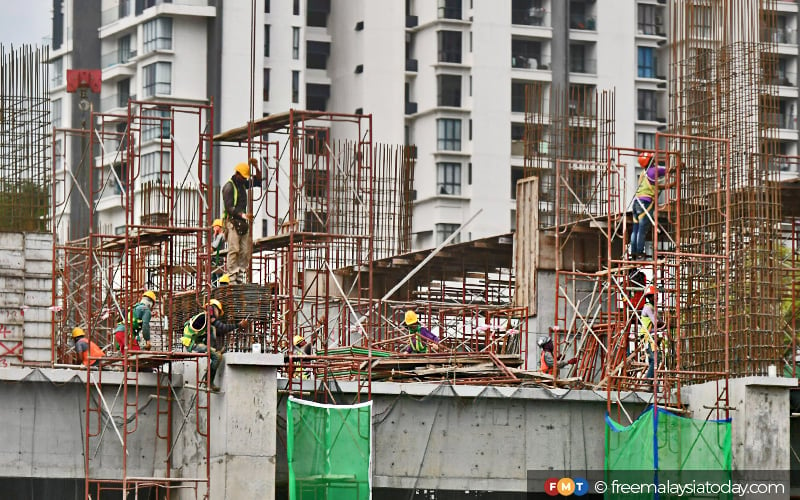
PETALING JAYA: The property market in the country will continue to strive and see more positive outcomes in 2024, said the Malaysian Institute of Estate Agents (MIEA) president Tan Kian Aun.
Tan said this optimistic outlook is attributed to numerous ongoing initiatives that are set for the year amid challenges mainly on the external front.
He said Malaysia has not experienced any sudden collapse or seen negative impact in the past year such as foreclosure that led to many people suffering in the sector.
“Although during the pandemic period there were some setbacks, the good news is that the industry is slowly recovering, which we can see in terms of stable pricing, and the revival of some abandoned projects that are also a good sign.
“This shows that people are interested and confident in rebuilding the property sector, or else no one will want to revive the projects,” he said in the virtual MIEA Property Market 2023 Review & 2024 Outlook today.
The housing and local government ministry reported that as of September 2023, a total of 301 projects or 38,752 housing units with a gross development value (GDV) of RM28.88 billion have been revived.
This included eight abandoned private housing projects with a GDV of RM574.08 million since the establishment of the task force on sick and abandoned private housing projects (TFST).
The ministry has also revived 266 abandoned private housing projects involving 67,773 housing units and 46,229 buyers in the same period.
Tan said Malaysia also continues to be among the most attractive investment destinations with exciting developments such as the Rapid Transit System (RTS) project in Johor, key industrial projects in the northern region, and the Pan Borneo Highway projects in Sabah and Sarawak.
He noted that there are growth potential opportunities in every area, not just in the Klang Valley but throughout the country, mainly due to the federal and state government’s initiatives to boost the market, particularly for industrial and manufacturing with the New Industrial Master Plan (NIMP) 2030.
Another catalyst, he said, is the infrastructure sector, namely the Penang LRT, the Autonomous Rapid Transit (ART) in Sarawak, and the focus on tourism, renewable and green energy as well as the low carbon initiatives in Sabah and Sarawak, among others.
“All these are high-value industries and will boost the economy and the property market in this region.
“The government’s fiscal policy, such as the full exemption on stamp duty for first-time housebuyers (for RM500,000 and below) until the end of 2025, will also encourage home ownership in the country,” said Tan.
Additionally, he said that the Housing Credit Guarantee Scheme allocation doubled to RM10 billion under the 2024 budget is expected to benefit 40,000 borrowers.
This is followed by the Malaysia My Second Home (MM2H) Visa Liberalisation Plan, demonstrating the government’s commitment to stimulating the market.
“The government is also doing a good job in controlling interest rate (current overnight policy rate at 3%) and making our country a friendlier place to invest in with a more focused direction that is in demand such as incorporating the sustainable living, green and renewable energy elements.
“We don’t expect the government to do something drastic to change the economic landscape but rather take a step-by-step approach because it may affect inflation, cost of living, and the income gap of the people,” Tan added.














POST YOUR COMMENTS